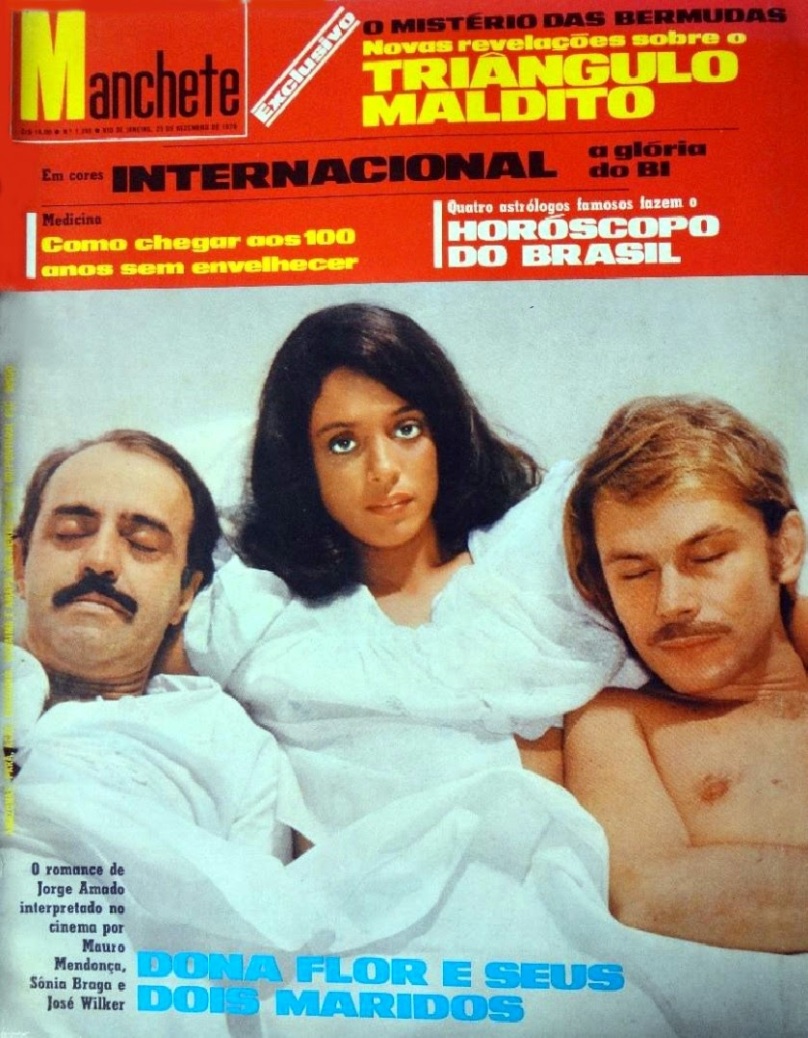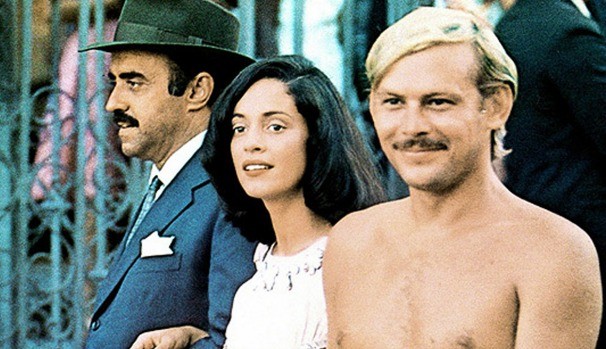
For some reason, people don’t often say a lot of biphobic stuff to me (at least not to my face). I don’t really talk about my bisexuality with people who I think would say biphobic stuff, because I don’t think it’s worth my time or energy. I grew up in rural Pennsylvania; any topic regarding sexuality (including heterosexuality) was considered taboo to the point of danger. My public high school promoted abstinence-only sex education. My home church endorsed purity culture to the extreme. Sex-education, as I recall it, was half-filled with theological mandates to be fruitful and multiply within the sanctity of marriage and half-filled with graphic depictions of sexually-transmitted diseases and unwanted pregnancy, with the clear knowledge that abstinence and abstinence alone was the only valid method to preventing both. I can still visualize the chart of different contraceptive measures, with their percent efficacy listed alongside them. Abstinence was at the top, the font twice as large as every other item on the list with a giant 100% in boldface. At the time, this never bothered me because until I was in my early twenties, I was effectively asexual, having never once had a remotely sexual desire (I’ll get back to that soon).
Does the fact of my bisexuality cause me anxiety? I don’t think so. Do the opinions of others regarding my bisexuality cause me anxiety? Yes. It would be a lie to say otherwise, because yes. Just because it’s not the root cause, or even a major contributor to my experience with mental illness, my sexuality is a factor.
It’s not just the theologically questionable and morally repressed culture of right-wing conservativism that causes me anxiety surrounding my bisexuality. In fact, I think it’s the lesser of two evils, because at least this one is an evil I know. I was bred in conservative culture, raised in it and steeped in it. I remember, distinctly, telling a friend of mine who was clearly gay but not yet out that Jesus wasn’t okay with homosexuality. That was me in high school, and I said that horribly heinous thing to a friend because I had been raised by my greater culture to believe that the only way for me to show that kid my love as a friend was to “show him the light” (Scott, if you’re reading this, I am so sorry). As wrong as it is to be homophobic and biphobic, I understand it acutely.
The evil I don’t understand, is biphobia within the queer community.
Bi men are assumed to be gay and only using the bisexual label to ease into queerness. Bi women are accused of performative bisexuality for the sole purpose of titillating straight men. Bi people, especially women, are assumed to be experimenting and thus not serious about their sexuality, or they are assumed to be incapable of monogamous commitment and thus always open to threesomes or inevitable cheaters. Lesbians refuse to date bi women, specifying on their dating apps that we need not apply. We are told that because we are interested in what appear to be heterosexual relationships that we have “straight passing privilege,” which is ultimately an insidious term for “we are in the closet.”

About a week and a half ago, I was asked to write about what a queer utopia would look like to me. I’ve had the question simmering in the back of my mind since then, and I’ve come to two conclusions. First, in my queer utoptia, biphobia wouldn’t exist, and second, I would not be suffering from anxiety.
I am often more comfortable in straight spaces than in queer spaces because I don’t know how to deal with biphobia from the queer community. I expect it from the straight community, especially the religious community that I grew up in and studied in undergrad. I went to Nyack College and was required to minor in Bible/Theology, along with everyone who went to Nyack College, and I loved it. I love theology. I also built my own unofficial minor in Women’s Studies at Nyack, and I loved it. I love it. The two intersected in two courses, both taught by the beautiful Amy F. Davis (who would surely disapprove of my bisexuality): Women in Christian Tradition and Male and Female in Biblical Perspective. It was in that second course (which I actually took first) that I learned the theological basis for the highly-patriarchal approach to gender relations endorsed by most right-wing evangelicalism, as well as the theological basis for the egalitarian approach to gender, a softly-feminist system of Biblical interpretation that affirms women in leadership roles. I know how to exist in religious spaces, not that I do it well anymore. I know how to exist in straight spaces.
When one is an asexual teen in purity culture, one is merely a devout follower. When one, at fifteen, declares that their first kiss will be on their wedding day, purity culture endorses this decision. The term “asexual” was used in biology class to refer to plants, not in sex ed to refer to approximately one percent of the population who are on the asexual spectrum. To be an asexual teen in purity culture is to be, essentially, straight. The only occasional passing thoughts I ever had about kissing other people involved my female friends, and even those thoughts were with the clinical detachment of a science experiment (experimentation in its truest sense) and were along the same lines of my passing thoughts of punching people in the face. It wasn’t I want to kiss this person because I am attracted to them. It was I wonder what the social fallout would be if I just kissed this person because I can? No lust or love behind it, just the curiosity of how it would affect the group dynamics. I never thought about dating anyone, male or female, ever. Even the couple of people I came close to properly dating in high school, I felt no genuine attraction to them sexually. I liked their personalities. Nothing ever lasted beyond handholding, which was not stimulating for me.
How did I go from being an asexual teen to being a bisexual young adult? I discovered sexual feelings through a sexually abusive relationship. I’ve written about it before; you can go back through my blog and find it, so I won’t go into detail on it again. After that relationship (thankfully) ended, I spent a month or so in a type of suspended shock, and then I realized, even when things had been consensual, I had never quite enjoyed them. I never once orgasmed with that abusive boyfriend, for all the hell he put me through. I didn’t understand. What was it about genital stimulation that people liked? I decided to find out, because I didn’t feel like I owned my body. I didn’t own my body, and I felt like finding a way to engage in sexuality would return that ownership to me. I dated another man, explored what I believed was my only option (heterosexuality) with him, and things ended in a blasé, stereotypical way.

I went from asexual to sexually interested to coupled up with a decent dude so quickly that I hadn’t had time to explore all of my interests, so when it ended, I began internally wrestling with not only my newfound sex drive that wasn’t being fulfilled, but also my interest in the female body. It took another year and a half to two years to talk about these “sinful” feelings with a friend, and her response will always stay with me. She said, “Sometimes I think I could date a woman, if I found the right one.” That was the moment that we both realized that we were both struggling with the same repressed attraction to multiple genders, the same internalized homo/biphobia. Today, we both proudly identify as bisexual. My parents, being the amazing people they are, don’t care at all. Hers have told her they regret having loved her.
Would my queer utopia also be a place free of abuse? Damn straight.
Because of my particularly rural, particularly odd arrival at bisexuality, I don’t usually feel comfortable in queer spaces. Queer spaces are all too often tailored to gay men–urban gay men. When it comes to queer culture, I receive a message, whether intentionally or not, that queer spaces are not for me. I am a highly anxious semi-shut-in with no interest in leaving my house after dark and no interest in crowded, public spaces. I grew up in a town with a town curfew, for crying out loud. It’s not in me to go out and be sociable late at night. Yet, when I am presented with queer culture, it’s almost inevitably tied up with two things: gay bars and Pride Parades.
Putting aside how the severity of my anxiety and also lack of interest prohibits me from the bar/nightclub scene, let’s talk about Pride and bisexuality. When we talk about Pride and bisexuality, we are inevitably talking about bisexual erasure within the queer community. LGBTQ Nation tells it better in their feature on biphobia at Pride events, and who can forget that earlier this year, London Pride didn’t have any bisexual groups marching in their parade.
The question of a queer utopia is difficult for me, because when I am faced with the biphobia of the gay and lesbian communities, I don’t feel queer. I feel like a fake queer, because by being bisexual, I am not queer enough. If I remain single or date a man, I’m assumed to be straight, an ally and not queer, not closeted but passing-privileged.
Earlier, I mentioned two essentials for a queer utopia. The first was the end of biphobia, and the second was the end to my anxiety. What do these have in common? I’ve already said that, while my anxiety about everything is high, it’s relatively low in regards to my sexuality.
But it’s still there, and statistically, it’s there for a lot of bi people.
Statistically, bi women are more likely to experience two things: mood disorders like anxiety and depression, and sexual harassment/assault. There are lots of reasons for this, I’m sure, and independent of sexuality, people in my age range also have increasingly higher rates of anxiety and depression. Anxiety is, in my opinion, a public health crisis that is being treated like a national joke. My anxiety (more Generalized than Social, but with touches of both) is severe, and I know other people with severe anxiety. I know gay men, straight men, bi men, trans men with severe anxiety, and the same can be said of women and genderqueer people. I also know people with moderate and mild anxiety.

I want to know, in actual research and not think pieces, why anxiety is such an epidemic in my generation, and I want to know (again, in actual research) why anxiety is such a plague for bisexual women specifically. My anxiety is almost completely unrelated to my sexuality, but the two still both exist as parts of me, and I am not alone in this. I have a little more than a passing knowledge of mental illness. I don’t study psychology formally, but I have been doing research on mental illness to support my fiction for years. In between all of the readings I’ve done and all of the papers I’ve written psychoanalyzing fictional characters (last semester I did depression in Niketche for a paper), I still can’t find a properly-researched answer as to why anxiety is on the rise the way it is.
But it is on the rise, and it is killing both me and many of my friends.
I don’t say “killing” lightly, either. Anxiety has a very high rate of confluence with other mental illnesses, especially other mood disorders like depression and bipolar, which most people already mentally associate with suicide, but anxiety disorders themselves are independently associated with suicide. The study I just linked to shows that 70% of people who have attempted suicide have been diagnosed with an anxiety disorder, especially but not limited to panic disorder and PTSD. According to the ADAA, 53% of adults are unaware that people with anxiety disorders are at risk of suicide. Add into this the fact that suicide is the second leading cause of death in people aged 10-24, and that LGBTQ+ youth are five times more likely than their heterosexual peers to attempt suicide (info from The Trevor Project), we can hopefully understand why bi women like myself are at increased risk.

We aren’t being protected by the majority culture because we aren’t straight enough, and we aren’t being protected by queer spaces because we aren’t gay enough. We are at risk.
How can I imagine a queer utopia that is anything other than a place where anxiety does not exist? Even if what I am anxious about is more often than not unrelated to my sexuality, they are statistically relevant to each other, and that scares me. It scares me that, in addition to the mounting flood that is my anxiety, my anxiety is not unique to me. I am not alone in this, and that is honestly more horrifying to me than if I was.

























